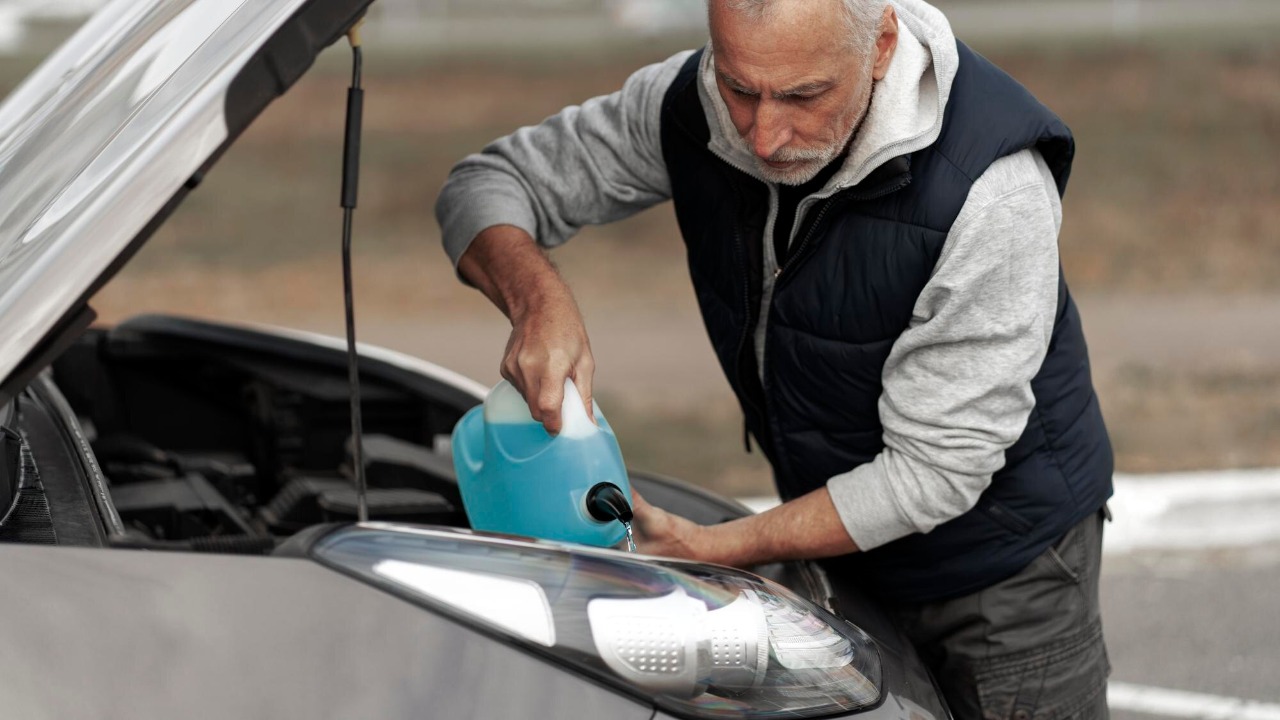
Antifreeze, a vital automotive fluid, can pose significant environmental and health risks if not handled correctly. Ethylene glycol-based antifreeze, in particular, is toxic to wildlife and pets. Fortunately, safe disposal methods such as recycling are widely available and encouraged. Local programs, like those in Huntsville, Alabama, offer simple household hazardous waste drop-off options to prevent contamination. Broader responsible disposal practices for vehicle-related fluids align with initiatives in Lansing, Michigan, emphasizing the importance of eco-friendly alternatives.
Understanding Antifreeze Composition and Risks
Common types of antifreeze, such as those based on ethylene glycol and propylene glycol, have specific chemical compositions that can be toxic to humans and animals. The environmental impact of these substances is significant, as they can contaminate water sources and soil if improperly disposed of. This is why it’s crucial to follow safe disposal methods, as outlined by Treehugger and the Huntsville, AL hazardous waste disposal program.
Antifreeze poisoning can cause severe symptoms in pets and children, further emphasizing the urgency of proper handling and disposal. The responsible management of automotive fluids, as explored in Lansing, provides a useful parallel for understanding the importance of safe antifreeze handling.
Why Recycling Antifreeze Is the Preferred Method
Recycling antifreeze is a feasible and preferred method of disposal. Through distillation processes, contaminants can be removed from used antifreeze, making it safe for reuse. This process, as explained by Treehugger, not only conserves resources but also reduces landfill waste.
The benefits of recycling extend beyond individual households. As seen in Huntsville, Alabama, recycling programs can contribute to broader hazardous material recovery efforts. Recycled antifreeze can be reused in new products, contributing to a more sustainable and responsible approach to vehicle fluid management, as demonstrated in Lansing.
Finding Local Recycling Centers and Programs
Many auto shops and municipal facilities accept used antifreeze for recycling. The household hazardous waste drop-off program in Huntsville, AL is one such example. Community recycling events, as mentioned in Treehugger, also offer opportunities for safe antifreeze disposal.
Some recycling centers offer incentives or free services to encourage responsible disposal. These services align with broader eco-friendly initiatives for car fluid disposal, as seen in Lansing.
Step-by-Step Safe Collection and Storage
Proper collection and storage of old antifreeze are crucial steps in its safe disposal. Draining the antifreeze from your vehicle into appropriate containers can help avoid spills. The hazardous waste handling guidelines in Huntsville, AL provide useful instructions for this process.
Once collected, antifreeze should be stored in a cool, dry area, away from children. Containers should be clearly labeled to prevent accidental ingestion. Tools like funnels and sealable jugs can aid in the safe handling of this liquid, as suggested by Treehugger.
Navigating Regulations and Legal Requirements
Antifreeze is classified as hazardous waste under federal and state laws. Compliance with these laws, as outlined by Treehugger, is essential for safe disposal. Local regulations may vary, as seen in the household collection rules in Huntsville, AL.
Illegal dumping of antifreeze can result in penalties. It’s important to check area-specific guidelines, as oversight of vehicle fluid disposal varies, as demonstrated in Lansing.
Alternatives When Recycling Isn’t Immediately Available
If recycling facilities are not immediately available, temporary storage solutions can be used. Safe interim methods, as reported in Huntsville, AL, can help prevent environmental contamination.
Professional services, such as mechanic pickups, can also be utilized for antifreeze disposal, as suggested by Treehugger. For those in rural or remote areas, broader alternatives for hazardous waste disposal, as explored in Lansing, can be considered. However, direct dumping of antifreeze should always be avoided.
More from MorningOverview